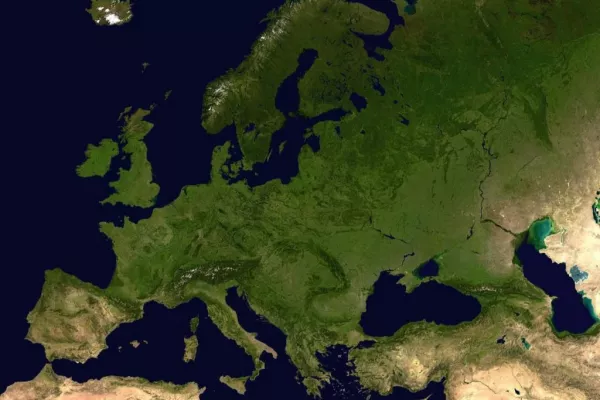On Wednesday May 13, the European Union pushed to reopen internal borders and restart travel, although the prospects of reviving tourism ahead of the summer season are mixed as public fears over health and safety weigh heavily during the coronavirus pandemic.
With the tourism sector, which usually accounts for approximately a tenth of the bloc's economy, now decimated by the pandemic, the EU's executive Commission has urged a return to "unrestricted free movement", albeit with safety measures such as face masks on airplanes.
"Our thoughts are now turning toward summer and to the places that we love to travel," said Margrethe Vestager, a Commission deputy. "That means taking gradual, careful steps to help travel restart in line with what science tells us."
Tourism industry groups praised the recommendations as a first step to help save their businesses, but the Commission's proposals are non-binding on the 27 EU members.
Furthermore, it recommended that Europe's external borders remain closed for most travel at least until mid-June.
Nations that have experienced some of the world's worst outbreaks appear to be in no hurry to let in large numbers of visitors. Two Spanish foreign ministry sources told Reuters that Spain plans to keep its borders closed to most travellers from abroad until July.
Many Europeans have already cancelled plans.
"We were all set to take the kids to Spain and Italy this summer. But not now, it's too risky even if it is allowed," said Jean-Paul, a 57-year-old Frenchman, who has frozen hotel reservations he now hopes to use with his family in 2021. "For now, we'll stay close to home and just enjoy some cycling, walking and fishing instead."
Europe's museums, beaches and plazas have been virtually empty since mid-March under a near-blanket travel halt that has destroyed jobs, pulverised the airline and hospitality sectors, and undermined Europe's cherished principle of free movement in a bid to contain the virus.
Social Distance Travel
Under the Commission's proposals, airlines and airports would insist passengers wear masks and reorganise check-ins, dropoffs and luggage pickups to avoid crowds. They would not require that middle seats be left empty on planes, a measure some airlines say would make profitable flying impossible.
The Brussels-based Commission also wants vouchers for cancelled flights or holidays to be valid for at least a year, with protection against bankruptcies, so that people will accept them instead of demanding refunds from cash-strapped airlines and travel firms.
It said that people should be able to stay in hotels, eat in restaurants or go to beaches, though it stressed that the situation would have to be monitored to prevent a new surge in infections.
"This looks like good news," said Toni Mayor, president of a hotels' association in Spain's Valencia region, which includes the major package holiday destination Benidorm. "If this combines with less pressure from the virus, as it seems,...we might just be able to half-save the summer season."
European governments are pressing ahead with their own plans to reopen at different speeds, depending on national circumstances, and some are promoting domestic tourism.
Already, the three Baltic states have decided to reopen borders to each others' citizens from May 15, creating a "travel bubble".
Austria and Germany plan to fully reopen their border on June 15. That will particularly help Austria's tourism industry, which relies heavily on German visitors.
And Switzerland plans to completely reopen borders to all neighbours except Italy on June 15, provided the pandemic allows.
However, Italy warned against border pacts between individual EU nations, saying that such deals could destroy the single market.
"We will not accept bilateral accords within the European Union that might create privileged tourist channels," Prime Minister Giuseppe Conte said in Rome. "That would leave us outside the European Union and we will never allow this."
German Travel Agents Protest
Some of the biggest tourist destinations are in the hardest-hit countries, such as Italy, Spain and France, which are only opening up slowly.
Spanish authorities are planning to keep the country's borders closed to most travellers from abroad until July, two foreign ministry sources said on Wednesday May 13.
Some countries are also planning to impose two-week quarantine periods for travellers arriving from abroad, including Britain, which has left the EU but is observing its trade and travel regulations until the end of the year while it negotiates its future relations with the bloc.
Within Europe's "Schengen" area, where borders are normally invisible, at least 17 nations have imposed emergency border controls.
With more than six million jobs in the tourism sector at risk across Europe, German travel agents protested on Wednesday May 13 to demand more government support for the industry.
In Berlin, some drove buses past the Brandenburg Gate, emblazoned with banners. Hamburg Airport tweeted a video showing socially distanced protesters at a terminal with suitcases on carts displaying signs saying, "We travel agents won't leave our clients out in the rain".
German-based travel group TUI said on Wednesday May 13 that it will cut 8,000 jobs and look to shed 30% of costs even as it gears up for a July restart to European tourism.
German Chancellor Angela Merkel said that the aim is to eliminate border controls again from June 15 in the Schengen area, but also warned people against rushing back to normality too fast and thus endangering a tentative improvement of the health situation.
News by Reuters, edited by Hospitality Ireland. Click subscribe to sign up for the Hospitality Ireland print edition.









